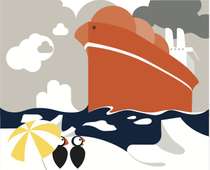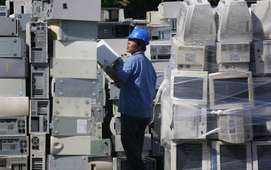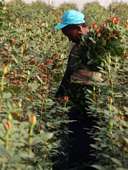Business / Global
Business
Briefing
Why computers are not happy in Taiwan, and Japan's biggest technology firms join up to create a nuclear power mega-corp.
Taiwan catches the millennium bug
Taiwan — COMPUTERS
Taiwan is facing its own version of the Y2K bug – when it was feared that computers around the world would crash after struggling to deal with the two-digit year code switch from 99 to 00. In the run-up to the turn of the millennium there was a frenzy to upgrade systems and prevent computer meltdown.
Taiwan uses the Minguo calendar, which was established on the founding of the Republic of China in 1911, so next year will be the year 100 in Taiwan. But a number of older computer systems aren’t equipped to handle three-digit years. Wang Wen-pu, a consultant hired by the Ministry of Economic Affairs to deal with private enterprises and in charge of the overall response for businesses, reveals how they plan to cope.
Q&A
Wang Wen-pu
Consultant to Ministry of Economic Affairs
What’s the problem?
To save memory, earlier computer systems reserved only two spaces for the year in the date column. Year 100 on the ROC calendar will become Year 00 or 10.
Is this as serious as Y2K?
Most government departments and businesses updated their systems in 2000, so the problem will not be as severe.



How many computers are affected?
Perhaps 20 per cent may be at risk.
What’s the worst that can happen?
The Taiwan Power Company’s billing mistake [charging NT$120m/€2.9m per household in June] is one example. Hospitals could miscalculate patient stays, banks could miscalculate interest.
What’s the government doing?
We’ve set up a service hotline and information website for businesses. At the end of the year, we’ll also have emergency response teams throughout Taiwan to help businesses deal with the problem.
Breaking the ice
Russia — SHIPPING
Ice-free for only two months of the year, the Northeast Passage shipping route has been neglected since the collapse of the Soviet Union. But steps are being taken to revive the Europe-Asia route, which runs north of Norway and Murmansk before crawling along Siberia’s Arctic coast and the Bering Strait.
Sovcomflot, Russia’s biggest shipping firm, is testing the route by sending an Arctic tanker carrying a cargo of gas condensate from Russia to China. “Sovcomflot is considering an operating schedule involving the Northeast Passage for 2011,” says Andrey Kechashin, head of corporate affairs in Moscow.
Power hungry
Japan — NUCLEAR ENERGY
Rivals? What rivals? Six of Japan’s biggest technology firms have joined forces to create a single company producing nuclear power plants in developing countries. Toshiba, Hitachi, Mitsubishi Heavy Industries and Tokyo Electric Power are among the six founding members of the tentatively named International Nuclear Energy Development of Japan, which will launch this autumn. Toshiba’s corporate communications manager Keisuke Ohmori says, “This is a new type of initiative in Japan, in which utilities and manufacturers join forces to seek new business opportunities amid increasing global competition.”
Good prognosis
USA — HEALTHCARE
In late September, the dominant trade group for handlers of computerised medical records, the 59,000-member American Health Information Management Association, will gather in Orlando for its first annual convention since Obama’s health bill became law. The bill gave the sector a huge boost, creating incentives for hospitals to digitise their paper files, along with more than $30bn in stimulus money to jumpstart innovation in the field. Meanwhile, in austerity Europe, healthcare services are set to shrink, with non-medical staff the most likely to lose their jobs. Sounds like there might be a few Green Card applications in the post.
New best friends
Kenya — TRADE
For decades, Kenya’s biggest trading partner has been the UK. The same is true across whole swathes of sub-Saharan Africa, where old empire links have proved to be more important, and lucrative, than geography.
Now Kenya has become one of the first to buck the trend – Uganda has become its number one trading partner. The change is partly due to the increased importance of the East African Community, an intergovernmental agency that also includes Tanzania, Rwanda and Burundi. The organisation has lowered border tariffs and recently announced plans to create a Common Market.
Licence to make money
UK
De la Rue is the world’s largest commercial banknote producer after acquiring Portals in 1995, which had been the largest banknote producer in the world for 300 years and which had made banknote paper for the Bank of England since 1724. In 2003 De la Rue took over the manufacture of British banknotes from the Bank of England.


